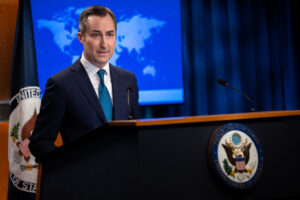India-Canada tensions over Trudeau’s accusations
Dispute highlights long-standing tensions between India and Canada over Khalistan movement – a campaign for sovereign Sikh state in Indian Punjab
NEW DELHI, India – Tensions between India and Canada have escalated after Canadian Prime Minister Justin Trudeau alleged possible links between India and the murder of Canadian Sikh leader Hardeep Singh Nijjar.
Nijjar was shot outside a Sikh temple in Surrey in June, sparking widespread concern in the local Sikh community.
Moninder Singh, a representative of the British Columbia Gurdwaras Council, said that while it was a recognition of foreign interference, it would take a sensational assassination to bring the issue to light.
India has responded forcefully, calling Canada’s accusations “absurd” and accusing Canada of failing to curb “Sikh extremism” and anti-Indian activities.
The dispute highlights long-standing tensions between the two countries over the Khalistan movement – a campaign for a sovereign Sikh state in Indian Punjab.
This movement has considerable support among a section of Sikhs residing in Canada.
Nijjar was a well-known supporter of Khalistan.
While the origins of the Khalistan movement date back to the end of British colonial rule, it gained momentum in the 1970s and 1980s.
Key events include the military storming of the Golden Temple in 1984 and the subsequent anti-Sikh riots.
Journalist Gurpreet Singh noted that the resurgence of the Khalistan movement can be attributed to the policies of India’s current prime minister, Narendra Modi.
Michel Juneau-Katsuya, a former senior intelligence officer with the Canadian intelligence agency CSIS, noted that while Canada and India have increased intelligence sharing.












